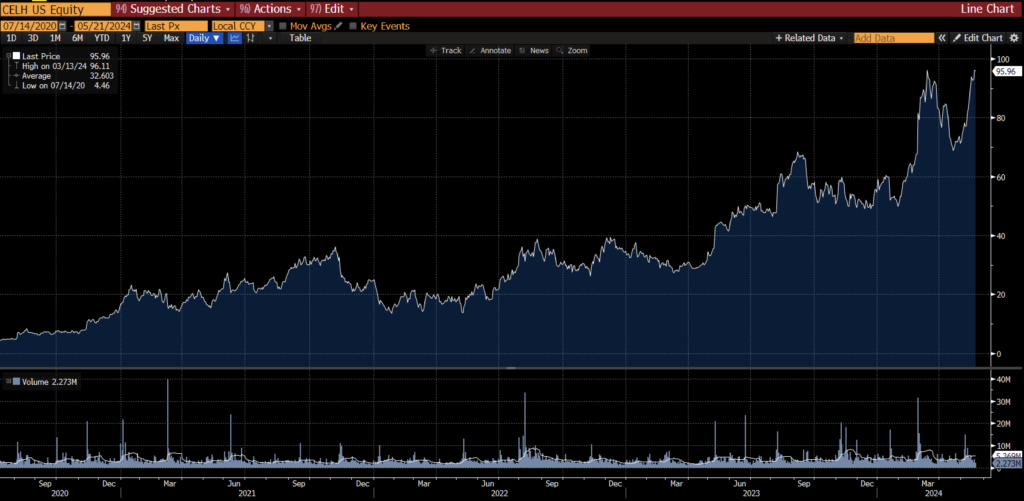The New York Yankees in the 1950s … the Boston Celtics from 1956 to 1969 … the Chicago Bulls of the ‘90s…
These teams all have something in common.
Yes, these are all perfect examples of sports dynasties, but that’s not what I’m thinking of.
These four teams show momentum in action.
Today, I’m going to tell you why you need momentum in your portfolio.
Winners Keep Winning
Richard Driehaus isn’t exactly a household name.
But this renowned investor and philanthropist is considered by some to be the father of momentum investing.
After graduating from DePaul University in 1965, Driehaus started his investing career as a leading researcher for some of the biggest trading departments at the time.
In 1979, he brought his ideas in-house and started Driehaus Securities. That’s where his ideas on momentum investing took off.
At the heart of Driehaus’ theories was the idea that winners keep winning. To put it in investing terms (and you’ve heard Adam and I say this a lot over the years), the key is to “buy high and sell higher.”
This is the core principle of momentum investing.
Driehaus pointed out that investors should not shy away from buying stocks that are already running higher. Instead, he believed those are the stocks with the potential to continue climbing.
Take the Chicago Bulls of the 1990s for example.
In the 1990 to 1991 season, the Bulls compiled a 61–21 record and went on to win their first NBA championship.
Fast-forward to the 1995 season and the Bulls won 72 games and lost just 10 — leading to their fourth league title in six years.
Two seasons later, the Bulls had won six NBA crowns in eight seasons.
It’s the perfect example of Driehaus’ theory that winners keep winning.
The Bulls, like the Yankees of the 1950s (6 championships), Celtics of the 1960s (9 championships) and UCLA men’s basketball of the 1960s and 1970s (10 championships), rode the wave of momentum, benefiting from the continued uptrend of their success.
Why Momentum Investing Works
Another sports adage that applies to momentum investing is “winning is contagious.”
Success breeds success … and it’s the same in the stock market.
When a stock is in a strong uptrend, investors tend to pile in. This drives the price of the stock even higher thus … winners keep winning. Driehaus said it best:
The momentum investor has confidence that a stock that is high can head even higher. We rarely invest in stock because it’s falling, and we hope for a turnaround.
Our investing instinct is to look for “bargain” stocks that are going down or bottoming out. That’s part of the “buy low, sell high” mentality you hear from talking heads on financial news media outlets.
The problem is stocks going down or trading sideways have little to no upside momentum to help them recover.
Plus, trying to time when a stock reaches its bottom is next to, if not impossible.
Buying a stock in a sustained uptrend means it’s already heading in the right direction.
And that’s precisely what you want in an investment.
If you want to see this phenomenon in action, let’s roll the clock back to 2020…
Momentum in Action
In July 2020, Celsius Holdings Inc. (Nasdaq: CELH) landed on our Green Zone Fortunes weekly hotlist.
It rated a 96 on the Momentum factor of Green Zone Power Ratings after the stock price had moved from $4.26 in January 2020 to more than $13 in July. That’s a more than 200% gain in seven months!
Many investors probably thought the steam ran out of Celsius and passed on this opportunity.
They were wrong. Celsius stock kept ripping higher. The chart below shows what happened after CELH landed on our watchlist.
CELH’s Momentum-fueled 2,000% Gain

Since it first made our watchlist, CELH went from $4.46 to around $96 in May 2024 (prices are split-adjusted). That’s a 2,052% gain in less than four years!
And while the stock has faltered since that peak, Celsius’ incredible rally made a lot of money for the investors bold enough to buy in.
That’s momentum in action!
Until next time…
Safe trading,

Matt Clark, CMSA®
Chief Research Analyst, Money & Markets





